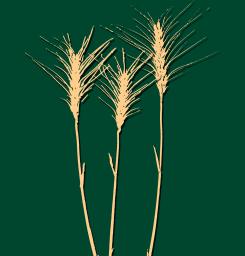
recipes


A belated hello, a blog link with a few recipes, and fictional fanciful tales about bread!
Hi, everybody!
Maybe this is a bit silly, since I've already exchanged messages with a few of your wonderful selves and posted my own question about how best to bake bread on a Coleman camp stove - and I received so many fantastic ideas and suggestions - but I hadn't really given an Official Introduction; essentially, I'm a writer and stumbling but devoted baker living in Hungary, and I've been so enthralled by the whole Fresh Loaf community.

Peter Reinhart is Accepting New Testers
The day I've been waiting for is finally here! I've read a number of posts where people refer to testing recipes for Peter Reinhart's books, so I sought out his website a few months ago. He kept saying he was going to open up his blog to new testers, and the day has come.
For the next week only, if you would like to test recipes for PR and report back to him on your successes/challenges/failures, go to http://peterreinhart.typepad.com/ and follow the instructions.
Happy baking!
Phyl

Favoirte Recipes Using Starter? - Needing Inspiration
Hi Everyone!!
I began a starter in April with the help of folks here and have been making consistently good sourdough bread since. I bake some type of bread about 2x a month and try to use my sourdough in at least on one of these. My starter seems very hardy and thankfully understands when I don't feed him for awhile - I just refresh before beginning and there has been no trouble with rises.

About posting copywrited recipes....
It seems I was a bit hasty in posting a recipe from KA (King Arthur) without the full required acknowlegements to the original source. Merely posting with "KA" was not enough. With some guidance from our leader Floyd, I requested more info from KA, this was they're reply...
"Thank you for your email. Yes, you can post our recipes online. We do request that you list King Arthur Flour as the source of the recipe, and include our current copyright:
©2008 The King Arthur Flour Company, Inc. All Rights Reserved.
Please let us know if we can be of further assistance.

Recipe suggestions for making only 1 loaf of bread?
I was excited to read that post about "Susan's loaf." I think it's difficult to find sourdough recipes that only call for 3 cups (or less) of flour.
Does anyone else have a recipe that makes a 1 pound or 1 1/2 pound loaf? Also, am I correct in thinking that 3 cups of flour is approximately 375 grams?
Thanks in advance for any and all advice!

Bread Stick Recipes please!
Hey,
I'm looking for some good breadstick recipes. I have Peter Reinhart's American Pie book, I don't know if any of those doughs transfer well into bread sticks. Also any good tips for shaping the sticks? Much appreciated.
Doughboy

gluten free Hamelman

Bread formula utility for Excel
I put together an Excel workbook for working with bread formulas. Although there are other similar tools on this site, this one has some nice additional features. Let's say you have a formula for a sourdough bread, but you want to make a couple changes. First, you want to add 10% spelt flour, you want to up the hydration from 65% to 68%, change the salt form 1.8 to 2%, reduce the dough yield from 3.5 pounds to 3.0 pounds, and increase the percent of pre-fermented flour from 15-20%.


